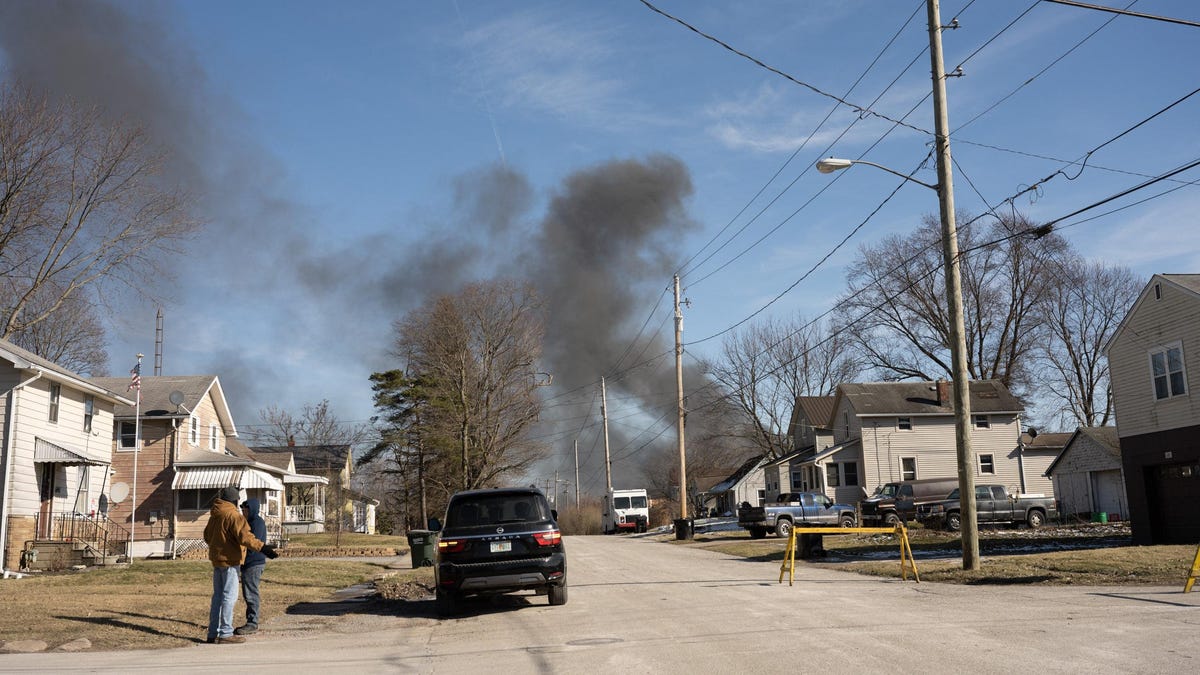The derailment last year of a train carrying toxic chemicals through the small town of East Palestine, Ohio seemed a drastic call to action at the time, but very little has been done to prevent a similar disaster. Indeed, following the derailment, incidents have only increased.
Congress attempted to pass a bipartisan bill in March of 2023 called the Railway Safety Act that would try and reign in crashes and derailments. It did not pass and the result was an increased in derailments at the five major U.S. train companies in the first 10 months of 2023. The only train company to improve was Norfolk Southern—the company that poisoned East Palestine in the first place. Despite the increased scrutiny from the feds, the derailments kept up pace. From the Times:
The accident forced an examination of how the rail industry is regulated and its safety record.
Despite that scrutiny, the five Class 1 freight railroads operating in the United States — Union Pacific, BNSF, CSX, Norfolk Southern and Canadian National — reported 256 accidents on their main lines last year through October, an 11 percent increase over the same period in 2022, according to data compiled by the Federal Railroad Administration. The five railroads had reported an aggregate decline in accidents in 2021 and 2022.
Derailments, the most common accident, were up 13.5 percent last year, and “obstruction accidents,” a term used to describe a train striking certain objects, and the second most common category, rose 21 percent.
The rail administration also compiles accident causes, and this data shows that there were 17 incidents involving overheated wheel bearings in the first 10 months of last year — more than double the six recorded in the same period of 2022 and higher than any full year’s total since 2014.
“We are absolutely, despite the uptick in some numbers in ’23, still by far the safest way to move goods over land, especially hazmat,” Ian Jefferies, chief executive of the Association of American Railroads, a trade group that also sets operating standards for railroads, said in an interview. “And we’ve got to work every day to continue to drive those numbers further down.”
While rail is still safer than trucking for moving hazardous materials across country, the dangers and risks are only increasing. A report from Toxic-Free Future focused on the chemical that spilled in East Palestine, vinyl chloride, and traced the journey of 36 million pounds of the stuff as it traveled via rail across the country, according to the Washington Post:
The path begins with OxyVinyl plants in Texas — a leading producer of the substance — to factories in New Jersey. The toxic chemical is normally used in polyvinyl chloride products — plastic materials including pipes, cable coatings and packaging materials.
Throughout any day, more than 200 rail cars filled with the chemical are moved across nearly 2,000 miles of U.S. railways — including through major population centers, the report said. And some experts worry that without intervention, the mass transport of the substance is another environmental health disaster just waiting to happen.
The threat that “bomb trains” pose as they move throughout communities, and the disasters that they have already created, should be enough to reconsider the chemical’s distribution entirely, report co-author Mike Schade said.
“These accidents aren’t happening every day. They’re not happening every month. But it’s going to happen again,” said Schade, from Toxic-Free Future. “And we think that the best way to prevent the next big disaster involving vinyl chloride is to phase out its production and use.”
So what’s causing this uptick in dangerous incidents? It’s a familiar story to anyone in the U.S. who has watched corporations run rough-shod over the American political process: Profits, in exchange for American lives and health. Most experts over the last year have pointed the finger at a railway management style known precision scheduling, which requires longer trains with fewer workers aboard. These workers are overloaded with responsibilities and often don’t have sick days available to them. And then of course, there’s the degradation of our infrastructure as a whole, including rail.

